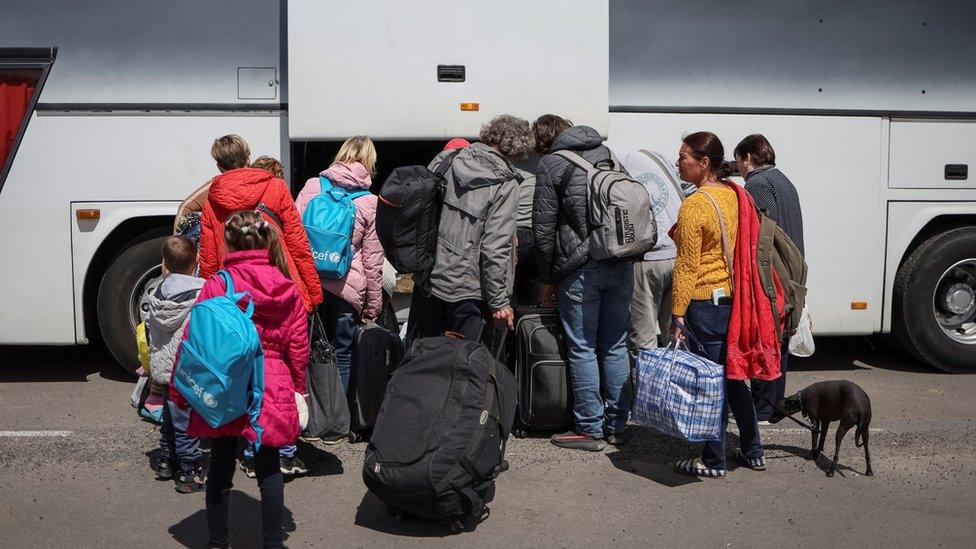Ukrainian refugees: More finding work in UK, ONS survey shows
- Published
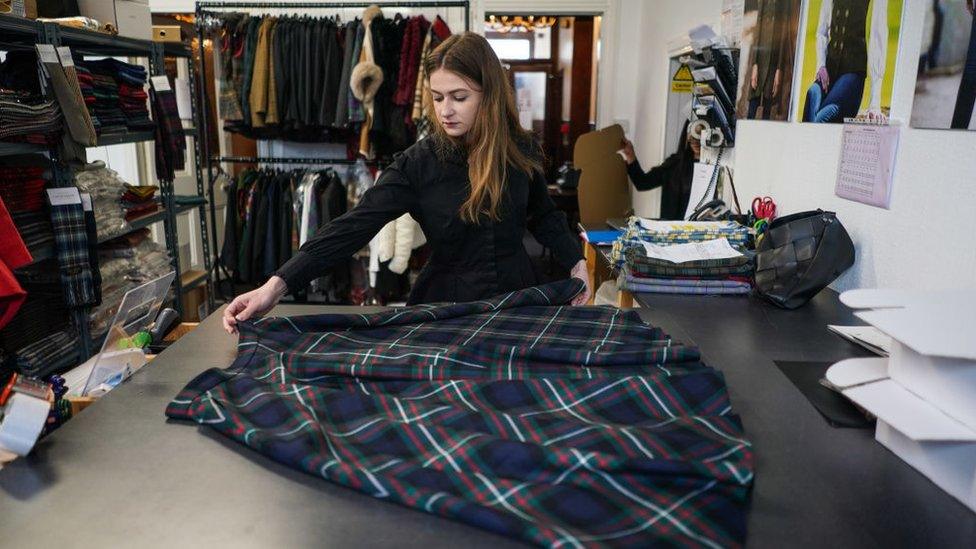
Bogdana Karlova found work at a tartan company after arriving in Scotland with her sister-in-law in March
About four in 10 Ukrainian refugees in the UK are now working, the Office for National Statistics (ONS) has said.
The proportion of Ukrainian nationals employed in the UK has risen from 9% in April to 42% at the start of August.
The findings come from a follow-up survey by the ONS of 1,132 Ukrainians, conducted between 20 July and 4 August.
More than 100,000 people from Ukraine have arrived in the UK under two visa schemes launched following Russia's invasion.
The newly-published UK Humanitarian Response Insight Follow-up Survey, external (UKHRIS), was commissioned to "understand the opinions and experiences" of people arriving in the UK under both the Ukraine Family and Ukraine Sponsorship schemes.
Veronika Keeva, 31, moved to the UK in May with her four-year-old daughter, and quickly found a job as a project coordinator in Swindon.
She tells BBC News her experience of finding work has been "really great" thanks to help from the local council, and advice from her sponsors and the Jobcentre on creating a British CV.
Ms Keeva says her colleagues have been "really supportive" and helpful, answering her questions and fitting her work schedule around her daughter.
She still often thinks about her father, who has stayed in Ukraine to fight in the army, as he previously spent a number of years living the UK.
However, she says she feels honoured to follow in his footsteps and go to places in England that he previously visited.
'I love this country'
Ivanna Vorontsova now lives with her aunt and uncle in Woking after fleeing the war, but says she worries about her parents, who still live in Ukraine, five hours from the Polish border.
Ms Vorontsova starts each day by contacting the family members who stayed behind. Even though they are in a remote town, she says they still hear air-strike warning sirens and don't know what to expect every day.
She tells BBC News she got a job as a student support officer in Woking and that it has been easy to adapt to life in the UK.
She says: "All the people I have met here have been nice and given me words of support. I love this country."
'So welcoming'
Olya Bielohlazova, 39, left Kakhovka, in southern Ukraine, in March with her husband and three children. The family initially stayed in Latvia for two months.
They posted on Facebook that they needed somewhere to stay in the UK and found a sponsor straightaway offering them a home in Sutton Bunnington, Nottinghamshire.
When they arrived, they were touched to find their hosts had decorated their street with Ukrainian flags, and Ms Bielohlazova says they were made to feel "so welcome".
Ms Bielohlazova worked for a digital advertising agency in Ukraine, but is now hoping for a career change, aiming to become a carer. "I really want to do it," she says.
The family scheme allows Ukrainian nationals and their relatives to join other family members already living in the UK, while the sponsorship scheme allows Ukrainian nationals and their relatives to come to the UK if they have a sponsor who can provide accommodation.
Two MPs, Victoria Prentis and Duncan Baker, have said they will continue hosting Ukrainian families in their own homes beyond the minimum six-month period expected under the Ukraine Sponsorship scheme.
Refugees who secure visas are allowed to stay in the UK for up to three years, and once in the UK, Ukrainians have the right to work, to access benefits, education and healthcare.
But while many have been successful in finding jobs, almost half of the people taking part in the survey said they faced barriers to their ability to take up work, including their English language skills.
Stories of people struggling to obtain safeguarding checks for certain jobs have also arisen.
Former MP Edwina Currie previously told the BBC a Ukrainian woman she was hosting in her home could not be considered for a job at her children's school as employers could not check her Disclosure and Barring Service (DBS) status.
The first UKHRIS in April sampled 3,412 individuals, with the majority entering the UK under the Ukraine Family Scheme.
The recent survey followed up on 1,132 individuals and found the proportion of Ukrainian nationals with bank accounts was up from 43% in April to 93% in August.
The survey also found 93% of Ukrainian nationals who had completed the first survey had remained in the country, though most respondents said they did not understand how to apply to extend or change their visa, or what state benefits they may be eligible for.
Some 37% of respondents said they had enough money to support themselves for the next three months, up from 26% in April.
The findings of the latest survey come six months after Russia's invasion began and in the same week outgoing prime minister Boris Johnson visited Kyiv to mark Ukraine's independence from the Soviet Union 31 years ago.
Related topics
- Published28 May 2022
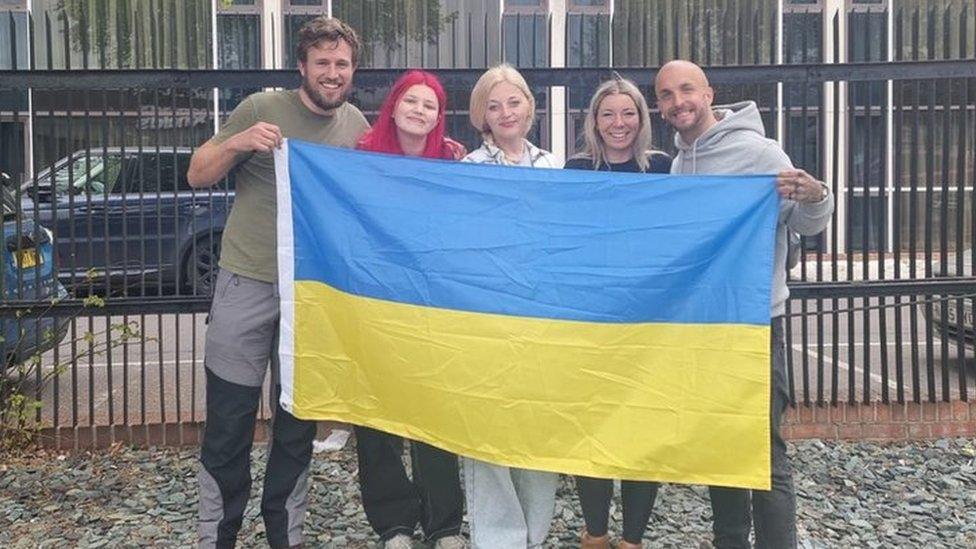
- Published17 June 2022
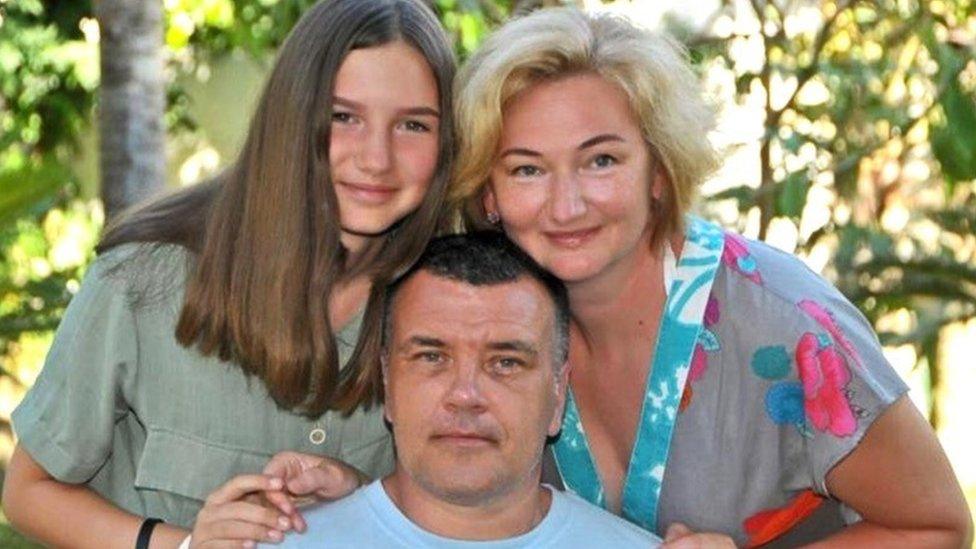
- Published22 June 2022
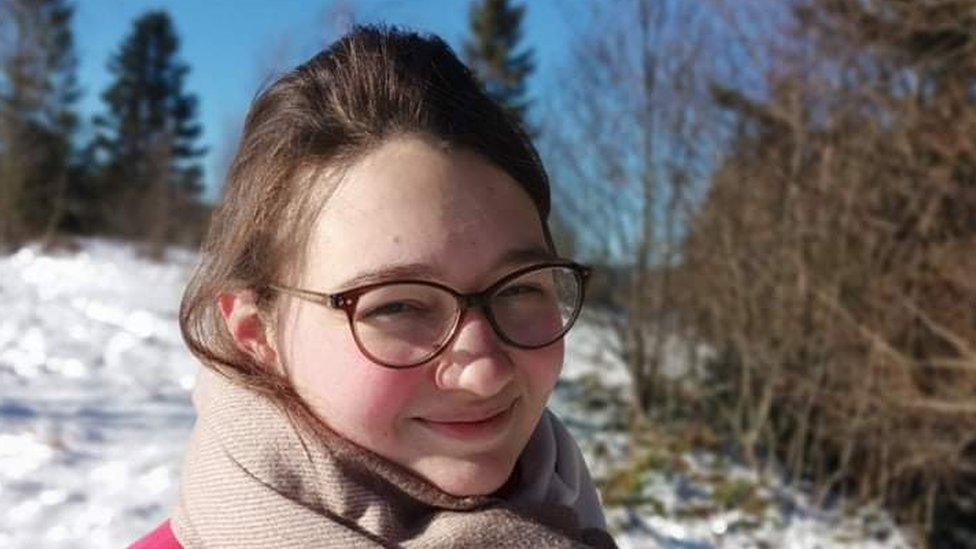
- Published29 July 2022
